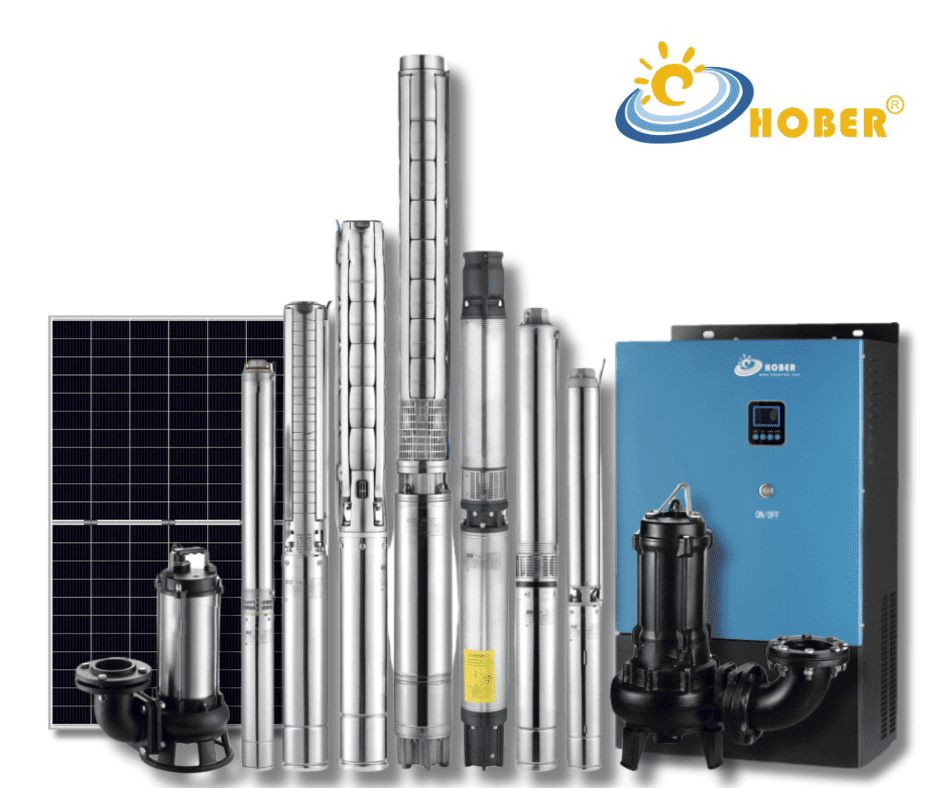For businesses involved in solar water pump systems, understanding the calculation of energy requirements and the total peak power of solar panels is paramount. This knowledge ensures that your solar water pumps are both efficient and capable of meeting daily water supply needs.
The Role of Solar Panels in Water Pumping
Solar panels are the heart of solar water pumping systems, converting sunlight into electrical energy to power the pumps. The total peak power of solar panels must be calculated to match the energy demand of the pump, taking into account the variability of solar irradiance throughout the year.
Formula for Daily Electrical Energy Requirement
To size a solar pump system accurately, one must first determine the daily electrical energy requirement (E1) with this formula:

- Water Volume (m³/day) is the amount of water to be pumped per day.
- TH (m) is the total head or the height to which the water needs to be lifted.
- Pump performance ratio is a factor based on the type of pump used (0.6 for volumetric pumps, 0.4 for centrifugal pumps with power less than or equal to 2 HP, and 0.6 for centrifugal pumps with power greater than 2 HP).
The constant 2.725 is likely a conversion factor that takes into account the efficiency of the pump and the average energy required to lift water per meter of head.
Calculating Total Peak Power of Solar Panels
Once the daily energy requirement is known, the total peak power of solar panels can be calculated using the following equation:

Here’s what each term means:
- Total peak power of solar panels (Wp): This is the maximum power output that the solar panels can produce under ideal conditions. It’s measured in Watts peak (Wp).
- Daily Electrical Energy E1 (Wh/day): This is the total amount of electrical energy required per day, measured in Watt-hours per day (Wh/day).
- Daily Irradiance (kWh/m²/day): This is the amount of solar energy received per day per square meter, measured in kilowatt-hours per square meter per day (kWh/m²/day). This value can vary depending on geographical location, time of year, and local weather conditions.
- Performance ratio: This is a coefficient that factors in losses due to inefficiencies in the solar power system, including those from the inverter, temperature losses, and other systemic losses. It’s a ratio without units and typically ranges from 0.75 to 0.85 for most systems.
This calculation ensures that your solar panel system is perfectly tailored to meet the energy demands of the pump, factoring in local irradiance data and system performance ratios.
Practical Example Including Total Peak Power Calculation
Let’s expand on the previous example: a 3 HP pump lifting 30 cubic meters of water to a height of 60 meters (50m borehole depth + 10m elevation), with a pump performance ratio of 0.6. The daily electrical energy requirement is 9,536 Wh/day.
Assuming an average daily irradiance of 5 kWh/m² and a system performance ratio of 0.8, the total peak power calculation would be:
Total peak power of solar panels (Wp)=9536/0.8/5
Total peak power of solar panels (Wp)=9536/4
Total peak power of solar panels (Wp)=2384 Wp
Why This Matters to Retailers and Installers
For retailers and installers, providing a system that aligns with the customer’s needs is crucial for reliability and customer satisfaction. Calculating the total peak power of solar panels ensures that the systems you install will consistently meet the daily water pumping requirements, even when solar irradiance is not at its peak.
Conclusion
Calculating the total peak power of solar panels is just as important as calculating the daily electrical energy requirement for your solar water pump systems. By mastering these calculations, solar pump retailers and installers can ensure their systems are efficient, reliable, and properly sized for their customer’s needs.
Discover the right solar water pump inverter for your projects and get expert advice by visiting hobertek.com.

